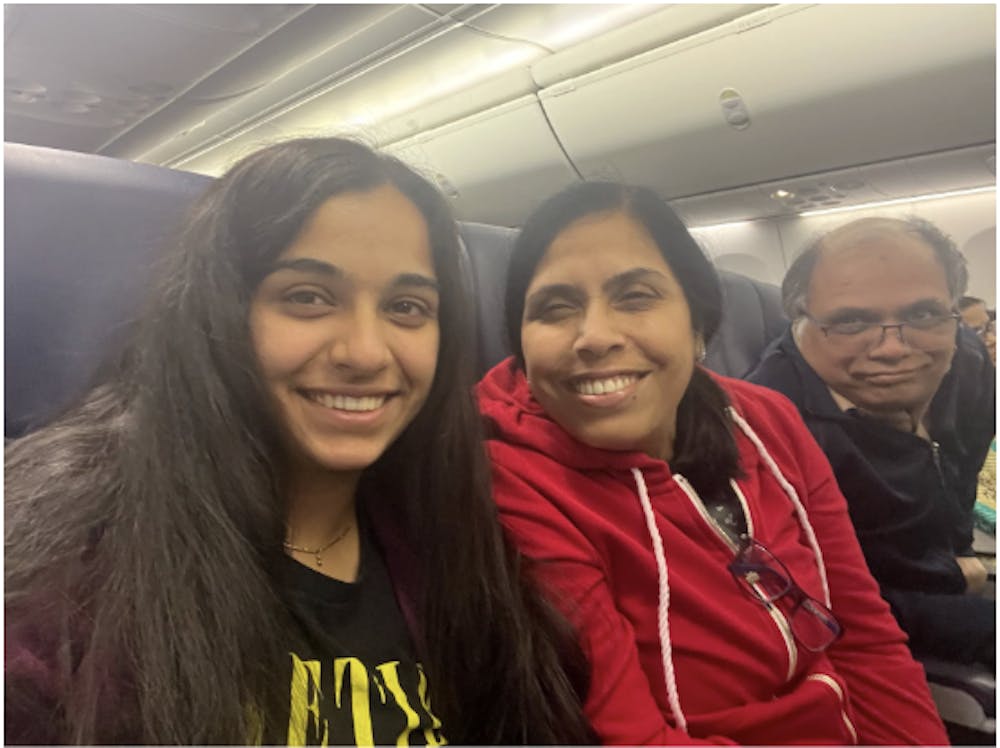
For as long as I can remember, I would call my dadi twice a day.
Every morning, I would ask her, “Dinner me kya khaaya aapne?” (What did you eat for dinner?)
Every evening, I would ask her, “Plan kya hai aaj ka?” (What’s the plan for today?)
Every Diwali, I would call her — and the rest of my dad’s side of the family — and wish them a happy Diwali. My parents and I would send a picture of our aarti setup, and we would do the whole pooja on a WhatsApp call with my grandparents. Welcoming Lakshmi, the goddess of prosperity and fortune, and Ganesha, the remover of obstacles, into our home and receiving their blessings was what I had grown up on.
October 20 was the first Diwali I have experienced without my dadi. And it was one of many signs that made me question the extent of my faith.
It is terrifying now, to me, to believe that the deities I pray to have omniscient power to change my fate. Because if one existed, it feels implausible that the world would be filled with so much loss and grief. I don't understand why I now celebrate Diwali without my dadi if these deities are supposed to bring her back to me. And the idea of one being having the power to fix the world sounds too good to be true.
But I’ve started to notice all the different ways in which I continue to find comfort in my faith. I still feel a sense of contentment when I join the Diwali aarti over FaceTime from my college apartment. I still tie a rakhi for my cousins, a symbol of our “sibling-like” love, even as we live thousands of miles away from each other. When I drop a book on the ground or touch it with my foot, I touch it with my hand and touch my hand to my forehead and lips, to show apology and respect. When I eat the sweets my mom has sent me for prasad, I always use my right hand (even though I’m left-handed), because it is tradition. I spent 15 years of my life dancing to the stories of the deities we pray to — the stories of Ram and Sita, of Krishna stealing butter from the matki, of battles on chariots and divine intervention, and I find solace in these old tales each time I return to them. I still keep a small Radha-Krishna statue on my desk. And before exams or presentations or even an anxiety-inducing interaction with someone, I take a second to touch its feet.
And finally (perhaps the most powerful example), I can’t let go of my belief in the idea of fate. Somehow, I still believe my loved ones came to me by chance and that I have been astonishingly lucky to have such strong bonds in my life. I believe that my family, in many ways, has been blessed with good fortune. That I got to spend 19 Diwalis with my dadi and that she got to watch me perform on stage, graduate high school and go to college are all things I count as lucky.
I believe that the friendships I’ve lost and the people I no longer talk to remained in my life as long as they were supposed to. I believe that I was supposed to bomb my first Design Team assignment because it transformed how I approached the next one. I believe that the rice I made a few nights ago was supposed to dry out because it meant I could eat takeout with my roommate today.
And what I have concluded is this: I’m not sure if everything happens for a reason, but I am sure that no matter how badly I wanted things to go differently, I am only who I am because this version of events occurred. And because I cannot change who I am, I have to accept everything that has happened — to keep going, I have to believe that this strange divine power of fate, which I do believe in, has a plan to transform me into exactly who I am supposed to be, to make everything work out in the end.
Shreya Tiwari is a junior from Austin, Texas, majoring in Biomedical Engineering. She is a Managing Editor for The News-Letter. Her column, "Invisible Strings," shares stories about all the people, places, and feelings to which she has “invisible strings,” intimate hidden connections that she hopes to reveal to readers with each piece.





